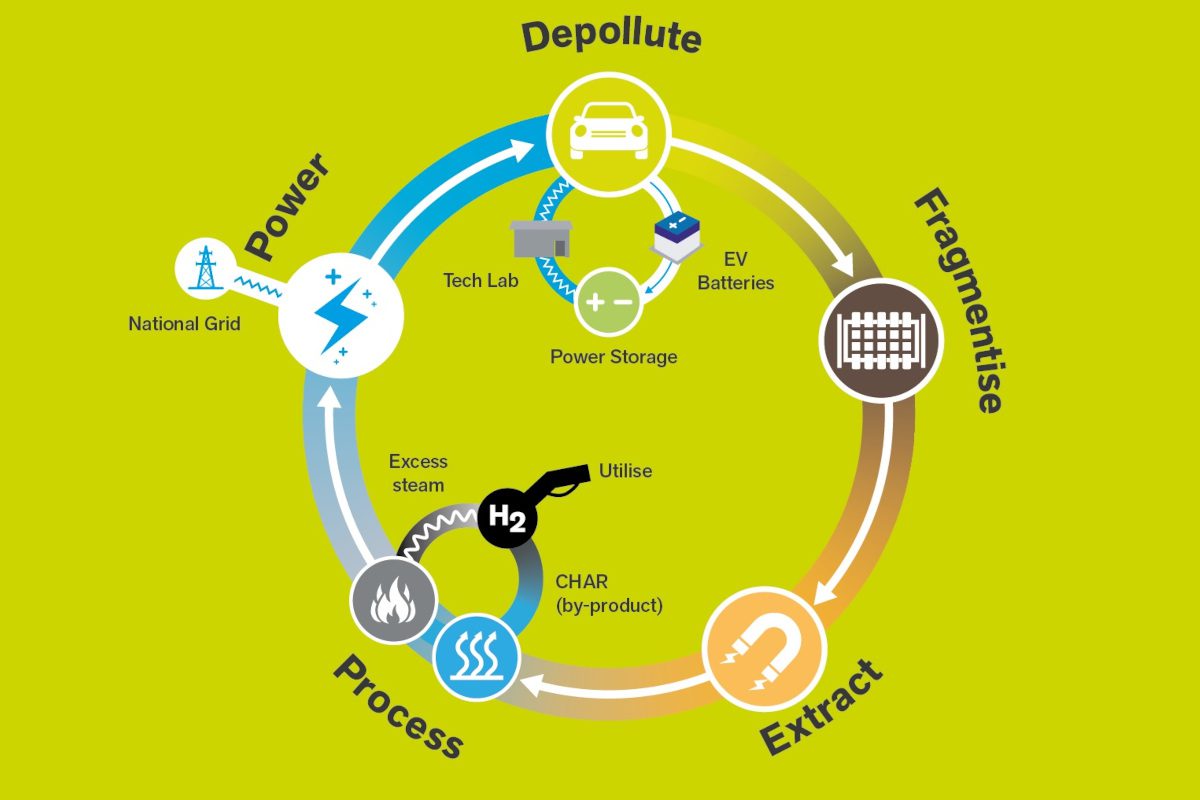
A seemingly ground-breaking solution allows hard-to-recycle automotive shredder residue (ASR) to be used to deliver renewable energy and reduce waste-to-landfill.
End-of-life vehicles processor Recycling Lives says it plans to reduce the amount of ASR that goes to landfill by diverting clean and graded material through thermal treatment technologies to generate energy at its 15-acre Recycling Park in Preston, an Authorised Treatment Facility.
Advanced thermal decomposition converts ASR waste into energy and generates by-products (char and combustible syngas). Char can be used to create green hydrogen, while residual char may be applied as a soil modifier, and ash as construction sector aggregate.
The firm says it has been trialling an innovative thermal treatment plant, with the aim of having a production model operational in 2022. Amongst other uses, the energy could potentially fuel the latest generation of emission-free vehicles and power site operations.
The final stage of the model will see banks of repurposed batteries from electric vehicles used to store renewable energy produced by the process, and power the purpose-built EV depollution facility at the Recycling Park.
Gerry Marshall, CEO of Recycling Lives said the new business model “will make the company’s overall process cycle greener and more energy efficient.”
“We have a long term aspiration to reduce landfill significantly through the ASR recycling solution.”
“This circular economy solution will extract maximum value from ELVs, reducing waste and producing power and green hydrogen, benefiting the wider community and the environment.
“Recycling Lives has used its commercial operations in recycling and waste management to create a business model that supports and sustains charity programmes for offender rehabilitation, residential support and food redistribution to deliver substantial social value. We are now turning a problem into a positive solution because ASR destined for landfill will instead generate energy, fuels and useful products at the same time saving on landfill levies and the negative environmental impact of landfill.
See the Make UK case study at https://www.makeuk.org/services/net-zero-hub/share-your-green-stories or visit https://bit.ly/3mFG5I9.







